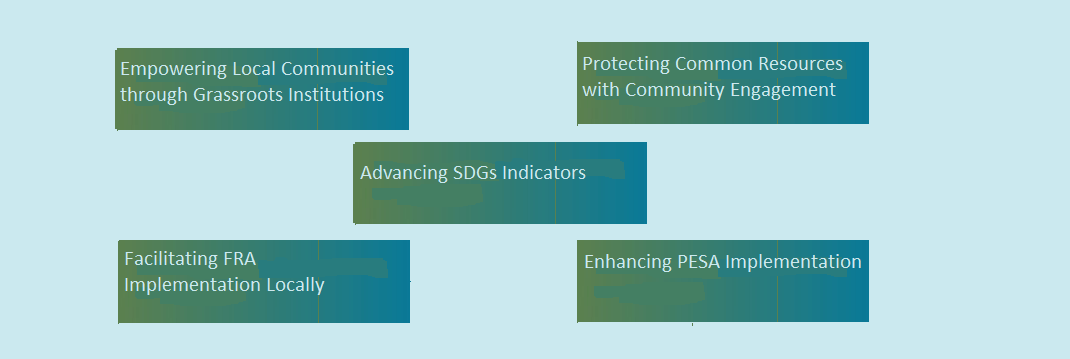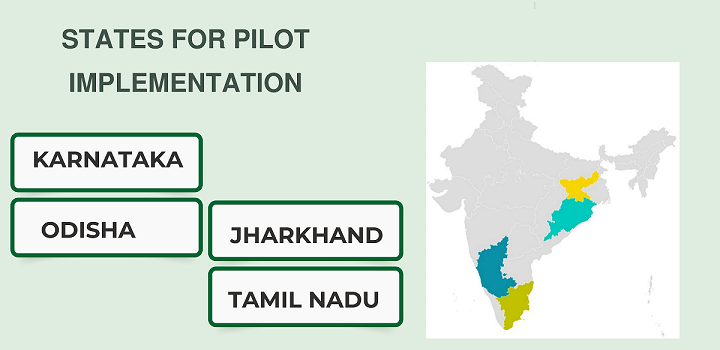GRASSROOTS-LEVEL INSTITUTION STRENGTHENING AND TRANSFORMATION FOR CLIMATE ACTION (GIST)
Empowering Communities Through Sustainable Development
The challenges posed by climate change reflected through extreme weather conditions devastate the livelihoods in the rural areas. The disappearance of common areas, which acted as a mainstay for the rural livelihoods, fast depleting groundwater, deforestation, and toxification of the air/water/soil due to chemical fertilisers – are destroying livelihoods and causing impoverishment. The main actors for rescue from this problem are the grassroots level institutions Gram Panchayats (the Constitutional Bodies), the Self-Help Groups (the people’s bodies), and the institutions for delivery of nutrition, education and health. Achieving convergence between these institutions and spurring them for joint action is the only way to rescue the situation from an imminent disaster. The Sustainable Development Goals (SDGs) are a universal call to action to end poverty, protect the planet, and ensure prosperity for all by 2030. They cover various social, environmental, and economic development issues. A critical goal under SDG 16 is to promote peaceful and inclusive societies. This goal focuses on reducing violence, ensuring access to justice for all, and building effective, accountable institutions. It aims to create a world where everyone can safely live and have their rights upheld. SDG 16 underscores the need for transparent, responsible, and inclusive institutions for sustainable development. It recognises that strong institutions ensure that all citizens, particularly the most vulnerable, can access critical services and participate in societal decision-making. To tackle these challenges at the grassroots level GIST initiative has been launched by CRISP.















